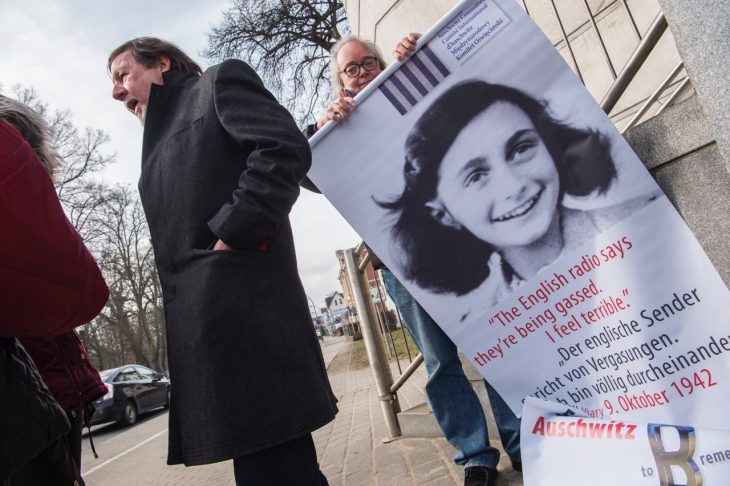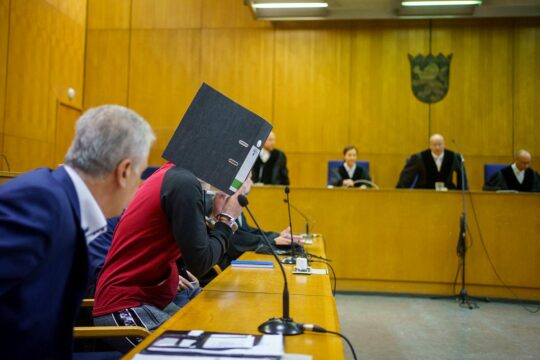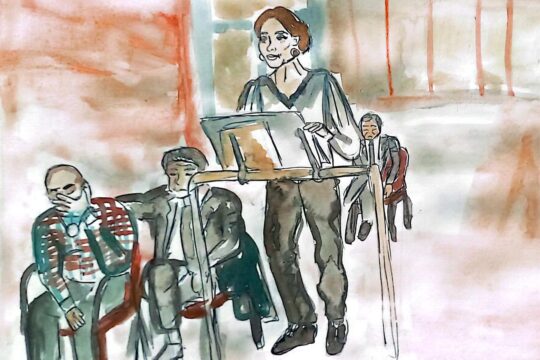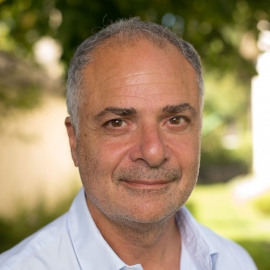Germany’s judicial authorities intend to pursue Nazi war criminals down to the last one, however old they are. As a 95-year-old former Auschwitz nurse Hubert Zafke was due to go on trial on March 14 (the court in the eastern town of Neubrandenburg halted proceedings the same day against Hubert Zafke indefinitely after he received a doctor's note saying he was unfit to attend the hearing) , we have to ask the question: Do these trials for History still serve as a lesson? And are they not hiding the fact that some of the worst Nazi war criminals were freed in the 1950s?
As early as 1948, French philosopher Vladimir Jankélévitch published “l’Imprescriptible”. He argued against the fact that at the time Nazi criminals could no longer be prosecuted 20 years after their incriminating acts. “It seems that 20 years is enough for their unforgivable acts to miraculously become forgivable,” he wrote. “A crime that was still punishable up to May 1965 thus becomes unpunishable in June, as if by a miracle.” In theory, if Adolf Eichmann, one of the architects of the Final Solution, had been arrested in June 1966 rather than kidnapped six years earlier – completely illegally – by an Israeli commando in Argentina, he could not legally have been prosecuted. Jankélévitch, through his commitment, was one of those who helped put an end to the idea of a cut-off date for prosecuting international crimes. “Forgiveness died in the death camps,” he wrote.
Legislation has since been changed so that now only the death of the suspects can put an end to prosecutions. Now judicial time is not limited, except by the biological end of the Accused. Current events show this clearly. On Monday March 14, 95-year-old former Auschwitz nurse Hubert Zafke, who was in that post when Anne Frank’s convoy arrived, goes on trial before a German court.
This trial is problematic, to say the least. The main risk is that the trial concentrates not on his “complicity” in the gassing of 3,681 Jews 72 years ago but on his current physical and psychological capacities. The court has admitted that he has “weak cognitive capacities”. A new medical report (contested by the civil parties) says Zafke is “victim to suicidal thoughts, stress and hypertension” and unable to follow his trial.
In the post-war years, Jankélévitch’s desire to see the 20-year cut-off date for prosecution of war criminals lifted was justified. But decades later the context has changed. In Zafka’s case there are two main dangers. Firstly, given the age of the Accused, any sentence will in reality be negligible. And then, the value of the trial in terms of serving as a lesson terms is highly uncertain, given the weak mental and physical state of the Accused. Is public opinion not going to transform the criminal into a victim of much too belated prosecution?
“Congratulations for good work”
The paradox is all the stronger since while German justice is now extremely harsh with men at the end of their lives who were only executors of the extermination machine, in the 1950s German Chancellor Konrad Adenauer sought to satisfy public opinion by persuading Washington to free all the Nazi war criminals, including some commanders of the “Shoah by bullets” responsible for the deaths of two million men, women and children. In 1955, all the war criminals were released, apart from ten whose crimes were particularly terrible. In 1958, men like Biberstein, Klingelhoefer and Ott were freed, although they commanded on the Eastern Front sinister units like the Einsatzgruppen, whose mandate was to liquidate Jewish populations. Peter Maguire’s book “Law and War, an American Story” (Colombia University Press) sheds light on this discreet process of liberating Nazi war criminals. Cold War America, wanting the West Germans on their side if it came to conflict with the Soviets, thus freed all the war criminals except those tried at Nuremberg, because they would have needed Soviet approval. A State Department telegram “congratulates” the US diplomat that handled these liberations for “a fine job”, recalls Maguire.
In retrospect, Realpolitik and mythology have come up trumps. History will remember the determination of the judges at Nuremberg and then of the German courts to prosecute Nazi war criminals down to the last one, whatever their age, and will no doubt forget other times when some of the worst Nazi criminals were set free.







